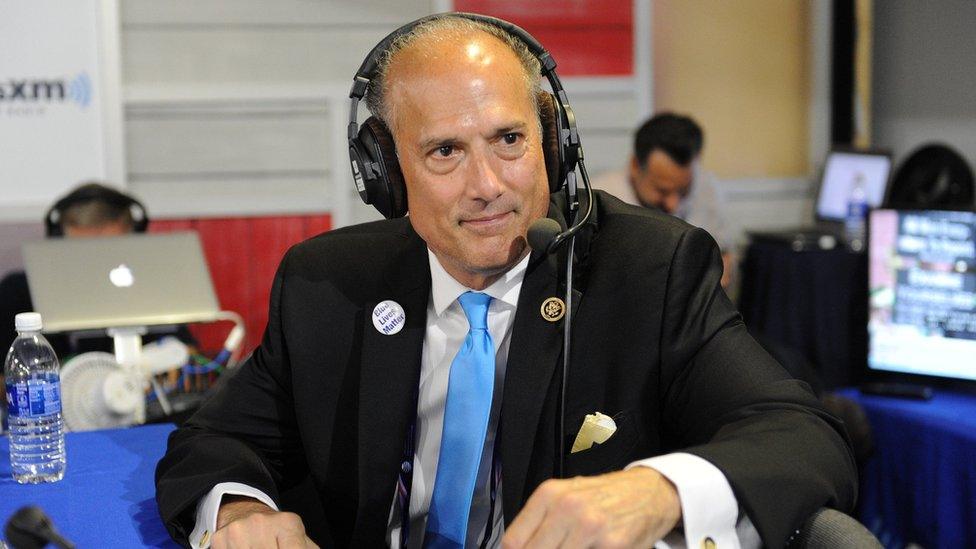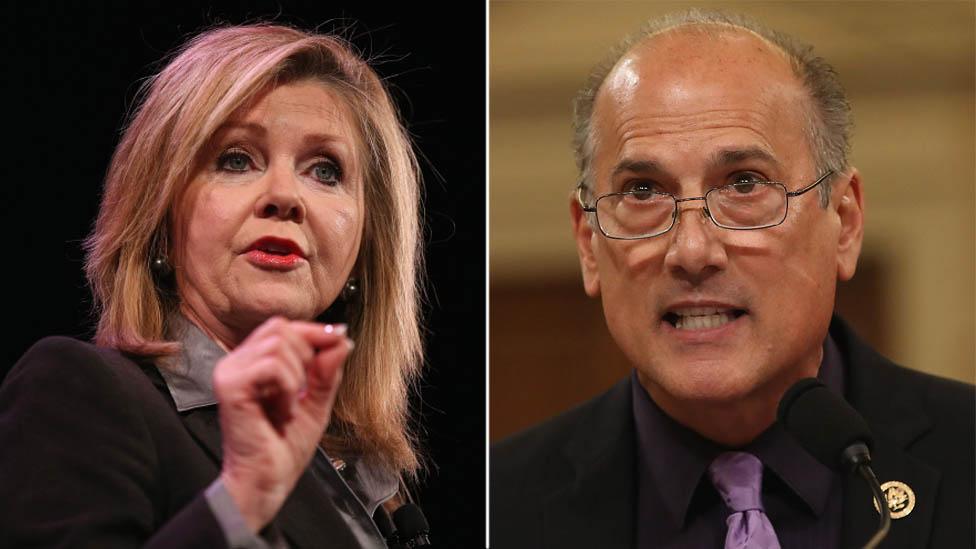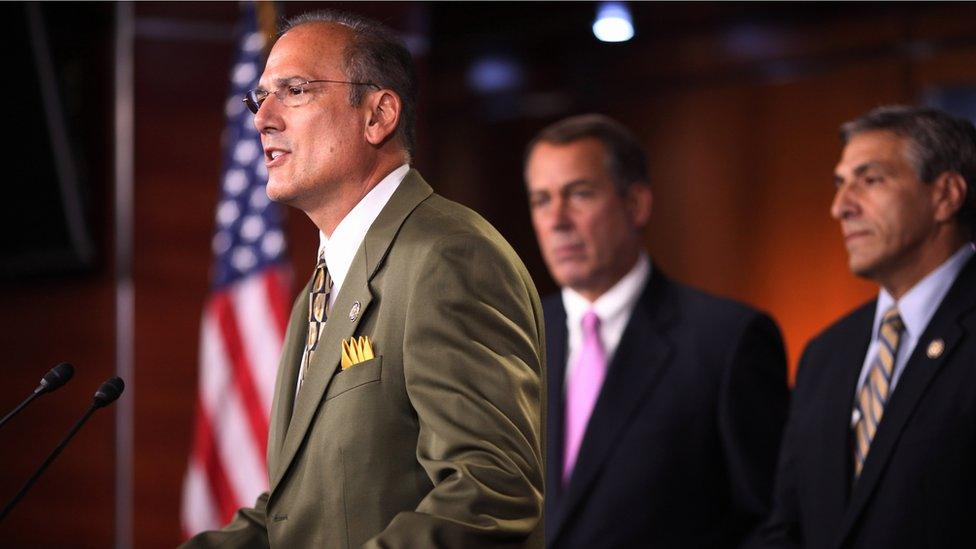Tom Marino: Controversial Trump drug czar pick withdraws
- Published

US President Donald Trump says his drug czar nominee has withdrawn, after he reportedly helped neuter government attempts to tackle the opioid crisis.
Pennsylvania congressman Tom Marino pushed a bill that reportedly stripped a federal agency of the ability to freeze suspicious painkiller shipments.
Opioid addiction has been described as America's biggest public health crisis since HIV/Aids spread in the 1980s.
Experts say the painkillers could kill 500,000 Americans in the next decade.
Mr Trump tweeted on Tuesday morning: "Rep Tom Marino has informed me that he is withdrawing his name from consideration as drug czar.
"Tom is a fine man and a great Congressman!"

Trump's troublesome nominees
Analysis by Anthony Zurcher, BBC North America reporter
It's not easy being a Donald Trump political appointee.
Some never make it into office. Labour Secretary nominee Andrew Puzder, for instance, backed out after facing questions about how he managed his fast-food empire and his personal finances. The president has twice tried to name an Army secretary, only to have his picks withdrawn.
Those who do land a job haven't had an easy time of it, either. Tom Price is done as health and human services secretary, the victim of a penchant for pricy air travel. Several other high-level officials - Treasury Secretary Steve Mnuchin, environmental boss Scott Pruitt and Interior Secretary Ryan Zinke - have been bedevilled by their own ethical concerns.
Now Tom Marino is gone before he ever arrived, thanks to too-cozy ties to a drug industry he might have to regulate.
Mr Trump swept into Washington as an outsider, never fully embraced by A-list political players. He rewarded many loyalists with administration positions who were unused to the glare of the public spotlight.
When the beam focused, some have wilted and others have flat-out melted.

The nominee's exit came a day after Mr Trump was pressed about allegations surrounding Mr Marino, as detailed in an expose by the Washington Post and CBS News' 60 Minutes programme, external.
Department of Justice Deputy Attorney General Rod Rosenstein said on Tuesday he "was very concerned" about the 2016 law co-sponsored by the Pennsylvania congressman.
The Ensuring Patient Access and Effective Drug Enforcement Act reportedly neutered federal efforts to stop opioid manufacturers flooding the market with the addictive painkillers.
Mr Marino and fellow Republican lawmaker, Marsha Blackburn of Tennessee, also reportedly helped force out a Drug Enforcement Administration (DEA) official who was taking on the drug firms.
Both Mr Marino and Ms Blackburn's home states have been ravaged by deadly overdoses from the opioid epidemic.

Marsha Blackburn (L) and Tom Marino co-authored "industry-friendly" legislation, according to the investigation
Mr Rosenstein, whose department oversees the DEA, was asked on Tuesday whether the legislation should be repealed.
"We're going to review it," he said. "I'm not prepared to answer that question right now but we are going to look into those issues."
Senate Democratic leader Charles Schumer said nominating Mr Marino to lead the Office of National Drug Control Policy was "like putting the wolf in charge of the henhouse".
Other Democratic lawmakers were also quick to criticise the now-withdrawn nominee.
Allow X content?
This article contains content provided by X. We ask for your permission before anything is loaded, as they may be using cookies and other technologies. You may want to read X’s cookie policy, external and privacy policy, external before accepting. To view this content choose ‘accept and continue’.
Allow X content?
This article contains content provided by X. We ask for your permission before anything is loaded, as they may be using cookies and other technologies. You may want to read X’s cookie policy, external and privacy policy, external before accepting. To view this content choose ‘accept and continue’.
Ms Blackburn reportedly received $120,000 (£90,000) in campaign contributions from pharmaceutical companies.
She is now facing the political fallout in her campaign for a Senate seat in Tennessee.
Mr Trump said on Monday he would formally declare a national opioid emergency next week, as he pledged to do more than two months ago.

More on the US opioid crisis
America's new generation of addicts
The heroin-ravaged city fighting back
- Published16 October 2017
